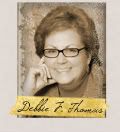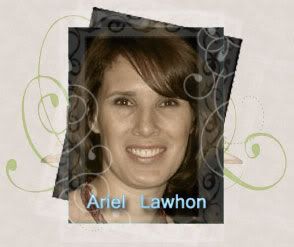Marian! You are the winner of a signed, and personalized copy of Talking to the Dead! Please contact me at our email (click the "contact us" button above) with your mailing address - and who you would like me to make it out to, and I'll get your book to you right away!

It’s simple semantics. But it’s not just semantics. I’m referring to my reluctance to use the term ‘hook’ when discussion the opening lines of a novel. I’ve no quibble with the concept of the need to offer the reader something grand off the top that keeps them reading. But ‘hook’? If I recall, it ends badly for the fish.
I prefer ‘invite’.
Semantics, right? Perhaps. But may I suggest there’s more at work here? Come read over my shoulder, and I’ll try to explain what I mean.
Scattered on my desk you’ll notice heaps of papers. Some from my computer printer, others bound in a book and given a nice cover with the author’s name on it. Let’s start with the computer paper. Contest entries, writers asking for my thoughts on their work, novels I’ve read for various reasons that have not found their way to publication. They represent hours of work and a great deal of soul searching. I approach them with respect. They weigh as much as a human heart. Still, look here how the writers try to ‘hook’ me with their opening lines.
One has decided to drop the reader into the middle of an ongoing argument between two characters. Yelling, tears, accusations – throwing of various objects. Dramatic stuff, to be sure. But does it belong at the beginning of a novel? 99% of the time, no (there are always exceptions to prove the rule). The problem with starting with an argument is the reader has no idea who the characters are. Even if every other logistical aspect of the scene can be dealt with, explained, and presented with a red ribbon – the heart of the problem with this hook beginning is the reader has no emotional connection with the characters. What would you do if you walked into someone’s house and found the couple that lives there arguing? Yay. Me too.
Here’s another manuscript that attempts to hook the reader. This time the author chooses to drop the reader into a character’s dream (or nightmare). Some interesting things happen and then an alarm clock rings and the reader needs to start all over again getting the feel of the REAL story, and the REAL character, and the REAL story world. Annoying. But the biggest problem with starting with a dream or nightmare is that it is very difficult to ground the reader in the setting, plot, and characters of the story. Vague. Symbolic. Perhaps interesting. But not at the front of the novel.
Here’s a novel that begins with a terrible car accident. Lots of twisted metal and shattering glass. Messy. This opening works fine if this novel falls into the mystery genre – a well-written car crash could be just the thing to get mystery readers off and running. But this isn’t a mystery novel (and this isn’t a blog about mystery novels), and that makes the choice to open with an accident risky. I’d say an 85% chance of not being able to make this work. If I pick up a novel and read of glass cutting into people’s skulls, and blood everywhere, I’m going to recheck the back cover to see if I’m reading the literary effort I thought I was reading. There IS a chance you could make this work if you back up the story to the hours, or even minutes before the accident happens and give us a fantastic intro to character and storyworld.
These are three examples of writing that attempts the letter of the law of ‘hook’, but misses the spirit. There are other examples we could look at, but lets move over to some of these books I have here and peek into a few of these.
As we read these, keep in mind those two words mentioned above: character and storyworld.
Here’s some favorites of mine:
“I told you last night that I might be gone sometime, and you said, Where, and I said, To be with the Good Lord, and you said, Why, and I said, Because I’m old, and you said, I don’t think you’re old. And you put your hand in my hand and you said, You aren’t very old, as if that settled it.” (Opening lines of Marilynne Robinson’s Gilead.)
The exquisite beginning is a wonder of character (an old man and a young child), their relationship (isn’t it interesting that Marilynne Robinson choose to reveal the emotional relationship between the characters before she revealed their biological relationship?), and the story world – the pages of the old man’s journal which comprise the entire novel. Simple, deep. Perfect.
“Those who saw him hushed. On Church Street. Liberty. Cortlandt. West Street. Fulton. Vesey. It was a silence that heard itself, awful and beautiful. Some thought at first that it must have been a trick of the light, something to do with the weather, an accident of shadowfall. Other’s figured it might be the perfect city joke – stand around and point upward, until people gathered, tilted their heads, nodded, affirmed, until all were staring upward at nothing at all, like wating for the end of a Lenny Bruce gag.” (Opening lines to Colum McCann’s Let the Great World Spin)
McCann’s opening is the textbook of creating storyworld in the first words. There’s no doubt where we are – Where but New York? And even though we don’t know exactly what is happening, we find ourselves on West Street looking upward into the New York sky and thinking, Yeah, I see it too. He doesn’t just hook us – he places us in the middle of what is happening. He turns us all into New Yorkers. Spot on.
“Afterward I lived in Paris, in the same apartment where I had painted the Brooklyn Crucifixion. I married Devorah, and we moved to the Rue des Rosiers. Some years later, Devorah gave birth to a girl, and we named her Rochel, after Devorah’s mother, of blessed memory, who was taken away in the July 1942 roundup of French Jews. We called her Rocheleh, beloved little Rochel.” (Opening lines of Chaim Potok’s The Gift of Asher Lev)
Chaim Potok has a way of wringing every drop of significance out of ordinary words. Here he simply speaks to the reader (in a manner of fashion), saying, “Look there’s a book before this one – you might know it. If not, we can simply catch up a bit now. We’re all in this together. We’re friends. Or we will be.” Straightforward, yes. But when he tells us of Devorah’s mother and the name Rocheleh we are pulled into a family of love and terrible loss – even if the author doesn’t say so.
“The mark burns upon him all the time now. Its hurt is open and shameful like a scab picked until it bleeds. In years past he could find ways to forget it or at least misplace his awareness for a while; it was never easy but he managed. These days he cannot. There is nothing to fill Cain’s time so the mark does this for him.” (Opening lines to David Maine’s Fallen)
Tell me you’re not sitting there picturing the mark. I am. What shape? An image? He’s old, something very few people on earth had experienced at that time. What does one do when one ages, anyway? Anyone familiar with the biblical story of creation (hello Western Hemisphere), is drawn into the myth, the theology, the story of Cain. But not the expected. Here he's not the passionate youth who took his brother’s life. Old. Useless. At ends. A whole new way of looking at Cain – and a wholly effective way of inviting the reader into character and storyworld.
In the end, there’s nothing wrong with using the work hook to describe the author’s intent for the opening of a novel. But I’ll continue to use the word ‘invite’ when thinking about how to open my novels. My hope is to invite the reader into the storyworld and into the community of character.
How about you? Do you hook ‘em? Invite them? Set the scene? How do you talk about the opening of a novel? Any favs you’d like to share?

 Thanks for asking question #3, Debbie. I read The Horse Whisperer after seeing the movie, and I was sooooo disappointed in the book. First and foremost, I considered the female protagonist of the book weak and sniveling. She didn't feel fulfilled. She was married to a nice guy who loved her and was a terrific father, and yet the cowboy--strong and silent, of course--totally got her. Ack!!! And the ending in the book was very, very contrived. Redford not only added spectacular vistas (including his face), but while the two main characters were definitely attracted (dance scene!), the wife left the ranch with the intent of saving her marriage, and the cowboy didn't have to die to make that happen, like the good father and husband was the woman's consolation prize. In short, Redford added nobility to the story.
Thanks for asking question #3, Debbie. I read The Horse Whisperer after seeing the movie, and I was sooooo disappointed in the book. First and foremost, I considered the female protagonist of the book weak and sniveling. She didn't feel fulfilled. She was married to a nice guy who loved her and was a terrific father, and yet the cowboy--strong and silent, of course--totally got her. Ack!!! And the ending in the book was very, very contrived. Redford not only added spectacular vistas (including his face), but while the two main characters were definitely attracted (dance scene!), the wife left the ranch with the intent of saving her marriage, and the cowboy didn't have to die to make that happen, like the good father and husband was the woman's consolation prize. In short, Redford added nobility to the story. #1:
#1: What a great Roundtable topic, Debbie. As I read Question #1, the first thing that came to mind as the most successful was To Kill a Mockingbird, then I saw it was your answer too. I don't mean to duplicate, but it tops my list, so I'll let it stand. The least successful, hmm ... I'll have to give that some thought.
What a great Roundtable topic, Debbie. As I read Question #1, the first thing that came to mind as the most successful was To Kill a Mockingbird, then I saw it was your answer too. I don't mean to duplicate, but it tops my list, so I'll let it stand. The least successful, hmm ... I'll have to give that some thought.


























